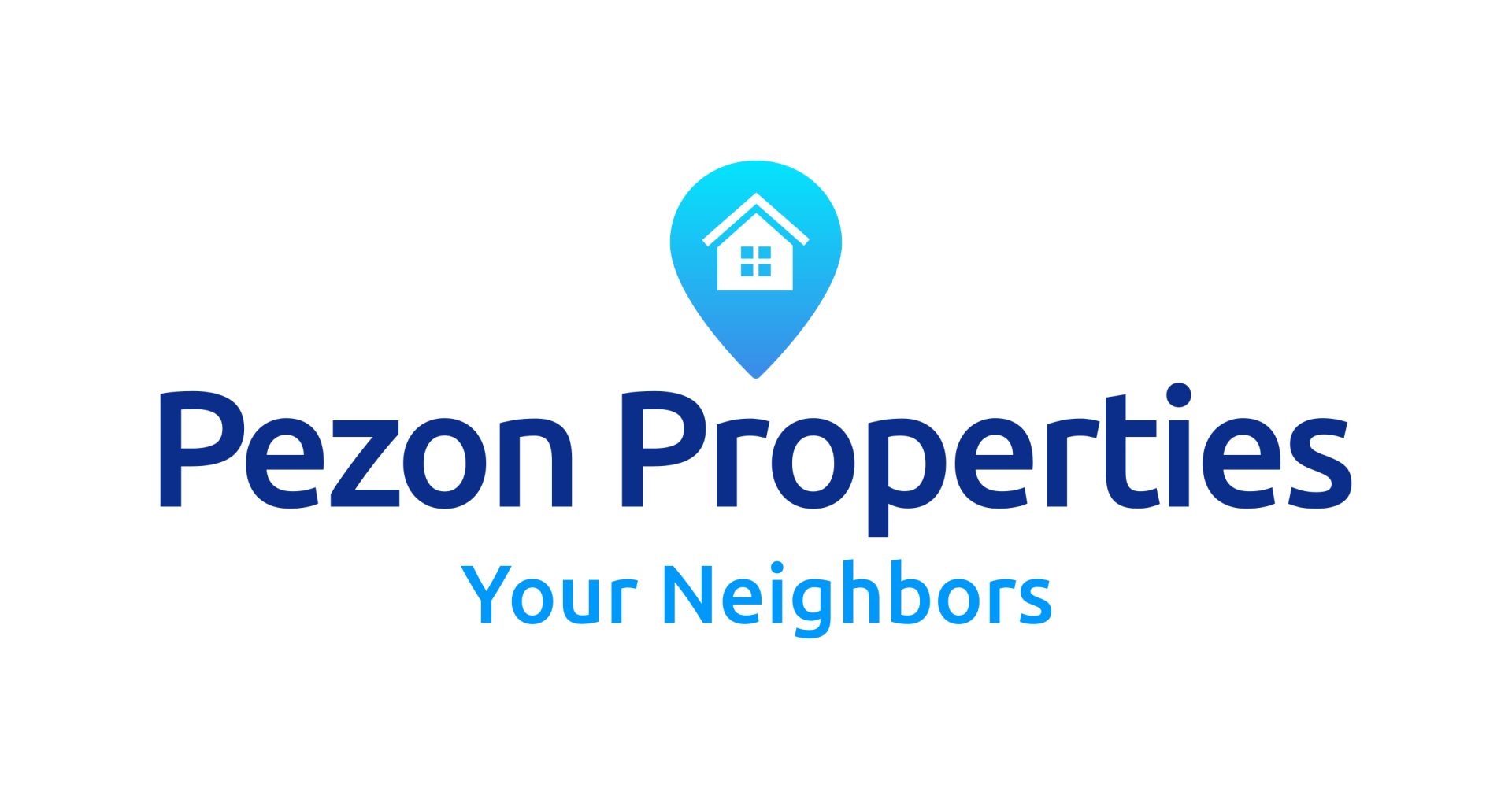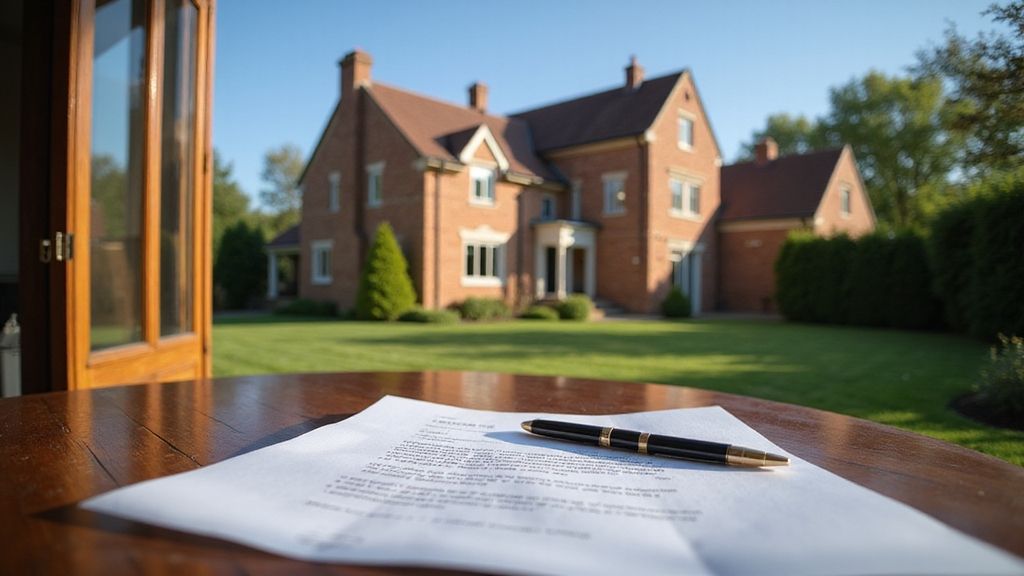What Documents Are Required for Selling an Inherited Property?

Selling an inherited property can feel overwhelming, especially if you are unfamiliar with the legal and financial aspects of the process. Whether you want to sell an inherited house quickly or go through a traditional home sale, understanding the documents required for selling an inherited property is crucial.
The process of selling an inherited home involves gathering essential paperwork to prove ownership, determine property value, and comply with tax obligations. Without the proper documents, the selling process could face delays or legal complications.
If you’re looking to sell an inherited home, whether in Pennsylvania or elsewhere, you must be prepared with the necessary documents. The following sections will walk you through each type of document required for a smooth sale process and help you understand the tax implications, ownership proof, and legal requirements involved in the process of selling an inherited property.
What Documents Are Required for Selling an Inherited Property?
When you inherit a property, you become responsible for handling its legal and financial matters, including ensuring that all necessary documents are in place before selling it. Below are the key documents required for selling an inherited property:
- Proof You Inherited the Property – You need official documentation that shows you legally inherited the property from the deceased owner.
- Current Property Ownership Documents – Ensure you have the title deed, which proves that the property is now in your name.
- Proof of Executor Authorization – If the estate is still in probate, you may need court documents proving you have the right to sell the property.
- Existing Home Loan Documents – If the property has an outstanding mortgage, you need loan statements and payoff details.
- Property Value Documents – A property appraisal or market valuation report is crucial to set a fair sale price.
- Tax Documents Related to the Property – This includes past property tax records, potential inheritance tax liabilities, and any capital gains tax obligations.
- Home Repair, Improvement, and Inspection Records – Buyers may request these documents to assess the condition and history of the home.
- Homeowners or Community Association Documents – If the property is part of an HOA, you must provide bylaws, fee structures, and regulations.
- Documents After Selling an Inherited Property – After the sale, you will need to keep records of the transaction for tax and legal purposes.
Each of these specific documents required plays a role in ensuring the selling process is legally compliant and financially sound. In the next section, we will discuss proof you inherited the property in detail.
Proof You Inherited the Property
Before you can sell an inherited home, you need to prove that you are the rightful owner of the property. This involves gathering legal documents that confirm your inheritance and verifying that the property legally passed to you. Below are the essential documents that serve as proof:
- Will or Trust Documents – If the deceased left a will or trust, these documents will specify who inherits the property. If a trust was in place, the trust document will outline the new owner of the property.
- Death Certificate – A certified copy of the previous owner’s death certificate is required to begin the probate process and establish your legal right to inherit the property.
- Probate Court Orders – If the estate goes through probate, you will need court orders confirming that you have the authority to sell the property. The probate process varies by state, but these documents are crucial for selling an inherited property.
- Affidavit of Heirship – In cases where probate is not required, an affidavit of heirship may be used to establish your ownership of the property.
- Letter of Testamentary or Administration – If you are the executor or administrator of the estate, you will need these legal documents to prove that you have the right to manage and sell the property.
Having these documents in order ensures a smooth selling process and prevents delays in selling an inherited home. In the next section, we will cover current property ownership documents and why they are essential for completing the sale process.
Current Property Ownership Documents
Once you have established proof of inheritance, the next step is to ensure you have all the necessary documents that verify your ownership of the property. These documents are essential for a legitimate home sale and must be in order before proceeding with the selling process.

1. Title Deed
The title deed is the most important document proving that you are the legal property owner. If the title is still in the deceased person’s name, you will need to have it transferred to your name before you can sell the house. This process may require going through probate or submitting a legal document to the county recorder’s office.
2. Property Tax Records
Up-to-date property tax records show that all taxes have been paid on the inherited home. Buyers and real estate agents may request these records to verify that the property tax rate is current and that there are no outstanding debts related to the property. You may also need to pay property taxes before finalizing the sale price.
3. Mortgage or Lien Documents
If the inherited property has an existing mortgage or any outstanding liens, you will need the loan documents and payoff statements. These documents detail any financial obligations tied to the property that must be settled before the sale process is completed.
4. Homeowners Insurance Policy
A copy of the homeowners insurance policy may be required by the buyer to verify coverage. If the property is uninsured, you may need to obtain a new policy until the sale is finalized.
5. HOA or Community Association Documents
If the property is part of a homeowners association (HOA), you must provide the HOA rules, regulations, and fee structure. This ensures that the new owner understands any obligations they will have once they take possession of the property.
Having these current property ownership documents in order helps streamline the selling process and avoids complications that could delay the home sale. In the next section, we will discuss proof of executor authorization and its role in the process of selling an inherited property.
Proof of Executor Authorization
If you are selling an inherited property that is still in probate, you will need to prove that you have the legal authority to act on behalf of the estate. This is particularly important if multiple heirs are involved, as the executor is responsible for managing the estate’s affairs.
1. Letter of Testamentary
A Letter of Testamentary is a legal document issued by the probate court that grants the executor the power to manage and distribute the deceased’s estate, including the right to sell the inherited home. Without this document, you may not be able to complete the sale process.
2. Letter of Administration
If the deceased did not leave a will, the court may appoint an administrator to handle the estate. A Letter of Administration serves the same purpose as a Letter of Testamentary but applies when no executor was named.
3. Court Order for Sale Approval
In some cases, the probate court may require approval before the property can be sold. A court order may be necessary to confirm that the executor or administrator has the legal right to sell the home and distribute the proceeds from the sale.
Ensuring you have these documents in place will prevent legal challenges and delays in the process of selling an inherited property. In the next section, we will discuss existing home loan documents and their importance in the selling process.
Existing Home Loan Documents
If the inherited home has an outstanding mortgage, you need to gather all existing home loan documents before moving forward with the selling process. These documents will help determine if any payments are due, whether you need to pay off the loan, and how the sale price will be affected. Below are the key loan-related documents you should have when planning to sell an inherited property.
1. Mortgage Statement
A recent mortgage statement will provide important details about the remaining balance on the loan, interest rates, and any outstanding fees. This document is essential to calculate how much of the proceeds from the sale will go toward paying off the mortgage.
2. Loan Payoff Amount
The loan payoff statement from the lender will show the exact amount needed to fully pay off the mortgage at the time of closing. This amount includes any interest accrued and final fees. Understanding this figure helps you set a selling price that ensures you can sell the home without financial complications.
3. Lien Release or Satisfaction of Mortgage
If the mortgage was recently paid off, you will need a lien release or satisfaction of mortgage document. This legal document proves that the property is free of debt and can be legally sold without complications.
4. Reverse Mortgage Documents (If Applicable)
If the deceased had a reverse mortgage, the loan must be repaid before the inherited house can be sold. Reverse mortgages are unique because they are often due immediately upon the borrower’s death. Understanding the repayment terms will help you determine the best course of action for the selling process.
5. Home Equity Loan or Line of Credit (HELOC)
If the deceased took out a home equity loan or HELOC, these debts must be settled before selling the property. Request a payoff statement from the lender to determine the amount due and include this in your calculations for the sale process.
6. Foreclosure or Loan Default Notices (If Applicable)
If the inherited home was in foreclosure or had missed mortgage payments, you need to obtain any foreclosure notices or loan default documents. Knowing the status of the loan will help you address potential legal or financial issues before listing the property for sale.
By gathering these home loan documents, you can ensure a smooth selling process and avoid unexpected financial challenges. In the next section, we will discuss property value documents and how they impact the sale price of an inherited property.
Property Value Documents
Before you sell an inherited house, you need to determine its fair market value (FMV). Knowing the value of the inherited property helps set a competitive selling price and ensures compliance with tax implications like capital gains tax and estate tax. Below are the key property value documents you will need throughout the selling process.
1. Property Appraisal Report
A professional property appraisal provides an accurate market value of the property. If the home was recently appraised during the probate process, you may already have this document. Otherwise, hiring a licensed appraiser will help determine the selling price based on the home’s location, size, condition, and recent comparable sales.
2. Comparative Market Analysis (CMA)
A real estate agent can provide a Comparative Market Analysis (CMA), which estimates the property’s value based on similar homes recently sold in the area. A CMA is less formal than an appraisal but gives a strong indication of the fair market value to help market the property effectively.
3. County Assessor’s Valuation
The county assessor’s office determines a property’s taxable value for property tax records. While this valuation may not reflect the exact sale price, it provides a baseline for tax calculations.
4. Home Inspection Report (Optional)
A home inspection report details the condition of the home, including potential repairs or updates needed before selling. This document can influence the selling price and help buyers feel confident about the home’s value.
Having accurate property value documents ensures you set a fair price and avoid issues with taxes on inherited property. In the next section, we will cover tax documents related to the property and their impact on the selling process.
Tax Documents Related to the Property
When selling an inherited property, tax documents play a huge role. The tax implications surrounding the sale can be a bit complex, so it’s essential to get all your paperwork in order.

Here are the primary tax documents you’ll need to understand and gather:
- Tax Return – You’ll need to provide your tax return from the previous year or any other documents that reflect the capital gains tax and other related taxes for the year. When you inherit property, the tax basis typically adjusts to the fair market value at the time of inheritance. This can help reduce the amount of capital gains tax you may owe when selling.
- Property Tax Records – Since you’re selling an inherited house, it’s important to show that all property tax obligations are current. Property taxes can vary by location, and it’s a good idea to make sure the property taxes have been paid up to date before listing the home. If you’re in a situation where the property is located in an area with high property tax rates, you’ll need to show proof that these taxes are up-to-date.
- Estate Tax – Depending on the size of the estate, there could be estate tax implications. The federal estate tax exemption can change over time, so if the property was part of a larger estate, the executor of the estate should provide any documentation that proves the estate tax has been settled. If the property is valuable, and the estate is subject to taxes, these documents will be crucial in the sale process.
- Capital Gains Tax – The capital gains tax you may need to pay depends on the difference between the sale price and the fair market value at the time of inheritance. When selling an inherited home, the property may be subject to capital gains tax if the home’s value has appreciated since it was inherited. However, you may not have to pay capital gains if you sell the home for the same value or less than its market value at the time you inherited it.
- Inheritance Tax – In some states, such as Pennsylvania, inheritance tax applies on inherited property. The tax rate can vary depending on the relationship between the heir and the deceased. If you’re inheriting a home, make sure to check whether your state imposes an inheritance tax and provide any necessary documentation to prove that this has been addressed.
- Tax Implications of Selling – If you want to sell an inherited house quickly, it’s important to be aware of any taxes on inherited property that could affect your decision. In some cases, selling a home shortly after inheritance could trigger different tax rates. Always consult a real estate agent or a tax professional to make sure you’re prepared for any taxes when selling.
In summary, tax documents are one of the most critical sets of paperwork required when selling an inherited property. Gathering your tax return, understanding the capital gains implications, and ensuring all property taxes and estate taxes are in order will help ensure that the sale process goes smoothly.
Home Repair, Improvement, and Inspection Records
Before selling an inherited property, it’s important to gather all documents related to any home repairs, improvements, and inspections that have been done. These records not only help potential buyers understand the condition of the property but can also impact the selling price and how much you’ll ultimately get from the sale. In some cases, these documents may also help reduce potential tax liabilities.
Here’s a closer look at the key documents you should have:
- Repair Records – If you’ve had any repairs done to the property, make sure you have receipts or invoices that show the work that was completed. For example, if you had plumbing issues, roof repairs, or foundation work, these documents will show the buyer that the property has been well-maintained. This can boost the value of your property and help justify a higher sale price.
- Improvement Documents – Sometimes, owners make upgrades to increase the property’s value or to make it more livable. For example, you might have updated the kitchen, renovated a bathroom, or even added a new deck or pool. If you’ve made such improvements to the inherited house, be sure to keep records of all the work done, including contractor details and receipts. These improvements can increase the market value of the home and impact the capital gains calculation when selling.
- Inspection Reports – Getting a home inspection done before selling can help you avoid surprises down the line. A thorough inspection report will give you a clear picture of the home’s condition and highlight any potential issues that need addressing before listing the property. If an inspection was done on the home, make sure to keep the report handy. If not, it may be a good idea to get one done before listing the property. This will also allow you to disclose any necessary repairs to buyers upfront, improving trust and potentially speeding up the selling process.
- Contractor and Service Provider Details – If you’ve worked with specific contractors, service providers, or inspectors, keep track of their contact details and service records. Some buyers might want to contact these professionals directly to inquire about the work done on the property. Having this information available can help answer any questions that come up during the selling process.
- Permits and Compliance Documents – When making significant improvements or repairs to a home, you may have had to obtain permits or follow specific building codes to ensure compliance. These documents are important, especially if you’ve done major work, such as adding an extension or making structural changes. Ensure that you have these documents available, as they will confirm that the work was done legally and to code, which could potentially save you from any legal issues in the future.
- Energy Efficiency and Sustainability Improvements – If you made any energy-efficient improvements, like installing solar panels or upgrading insulation, keep track of those documents as well. These improvements can make the home more attractive to potential buyers who are interested in sustainability and reducing energy costs. Plus, it can sometimes affect the fair market value of the property.
Having these repair, improvement, and inspection records will help you provide transparency to potential buyers and ensure that you’re asking a fair price for the home. Plus, it can make the selling process more efficient and help you avoid last-minute repairs or issues that could delay the sale of the house.
Homeowners or Community Association Documents
If the inherited property is located within a community association or is part of a homeowners association (HOA), you’ll need to gather the relevant documents associated with that. These documents can impact the sale process and play a key role in the buyer’s decision-making.
Here’s what you need to look for:
- HOA Rules and Regulations – Homeowners associations usually have a set of rules and regulations that govern things like property maintenance, noise levels, and what can or cannot be done to the exterior of the property. These rules are important for any potential buyers to understand, as they might influence how they can use or improve the property. For example, the HOA might restrict certain types of home improvements, such as adding a fence or repainting the house a specific color. You should have these rules available for the buyer to review before moving forward with the sale.
- HOA Fees and Payment History – Many homeowners associations charge monthly or annual fees to maintain common areas or provide services like landscaping, snow removal, or security. Buyers will want to know how much these fees are, how often they need to be paid, and if there are any outstanding fees. Therefore, you’ll need to provide payment history or receipts that show the fees have been paid up to date. If the fees are overdue, it’s important to settle them before listing the house, as unpaid fees could create complications during the sale.
- HOA Meeting Minutes – If the property is part of an HOA, it can be helpful to have the meeting minutes from recent HOA meetings. These records provide insights into the association’s activities, any upcoming changes to rules or fees, and any major issues within the community that could affect the property or its value. For example, if there is an upcoming special assessment fee for major repairs to the neighborhood infrastructure, potential buyers will want to know about this.
- CC&Rs (Covenants, Conditions, and Restrictions) – These are legal documents that outline the community’s restrictions, including things like property use, zoning, and building guidelines. If the inherited property is part of a community with CC&Rs, you’ll need to provide the buyer with a copy of these documents. Buyers may want to know what they can or cannot do with the property after they purchase it, so having this information upfront is essential.
- Insurance Documents – If the HOA provides insurance for shared areas (like a community pool, park, or exterior walls of buildings), you might need to provide documentation that confirms the coverage. This is particularly important if the property is part of a multi-unit complex, such as a townhouse or condo. The buyer may need to know whether they are covered by the HOA insurance or if they’ll need to get their own.
- Special Assessments or Pending Litigation – Be upfront about any special assessments the HOA has placed on the property or any pending litigation involving the HOA. These could affect the value of the property or make the property less desirable to potential buyers. Full disclosure is crucial in maintaining trust and avoiding legal issues later in the process.
If you’re selling an inherited home that’s part of an HOA, having these documents in hand will help you sell your inherited property more efficiently and keep potential buyers informed. Some buyers might even request to see these documents before making an offer, so having them ready can make the process move much faster.
Documents After Selling an Inherited Property
Once you’ve successfully sold your inherited property, there are a few important final documents and steps you’ll need to address. These documents are essential for closing out the sale and ensuring that you meet any legal or financial obligations.
Here’s a rundown of the key documents to expect after selling an inherited house:

- Sale Contract and Closing Documents – The sale contract is the agreement between you and the buyer outlining the terms of the sale. This will include the sale price, contingencies, and other relevant details. Once the sale is finalized, you’ll receive the closing documents, which include the deed of sale, the transfer of ownership paperwork, and any adjustments to the sale price. Make sure to keep a copy of these documents for your records. These will also help you prove that the property was sold legally and can be important when filing your taxes.
- Proof of Sale – After the sale, you should receive a proof of sale from the buyer or the real estate agent. This document will confirm that the property has been transferred to the new owner. It’s essential to keep this as part of your permanent records for future reference, especially if any legal or financial questions arise about the property later.
- Capital Gains Tax Forms – Depending on the capital gains tax implications of your sale, you might need to fill out additional tax forms related to the sale. For example, if you made a profit on the sale of the inherited property, you could be required to pay capital gains tax. Your tax advisor or accountant can help you with these forms and ensure that you comply with the IRS regulations regarding capital gains tax on inherited property. Keep in mind that if the property was sold for more than its fair market value at the time of inheritance, the difference is considered taxable income.
- Proceeds from the Sale – Once the sale is complete, you’ll receive the proceeds from the sale. This is the final amount you’ll walk away with after the buyer’s funds have been transferred and any remaining debts, fees, or taxes have been paid. It’s a good idea to keep a record of the sale price, as this will be important when filing your taxes and calculating any potential capital gains.
- Transfer of Ownership – After the sale, the property ownership will officially transfer to the buyer. You’ll receive a deed of transfer that indicates that the new owner is now responsible for the property. This is a crucial document, as it legally concludes your ownership of the inherited home. Make sure to get a copy of this document to finalize the transfer process.
- Clearance of Any Liens or Debts – If the property had any existing debts or liens (such as unpaid property taxes or a mortgage balance), these will need to be cleared before the sale can be completed. Ensure that any liens are fully addressed, and get written confirmation from the buyer or title company that these issues have been resolved.
- Final Tax Documents – Finally, after selling the inherited property, you may need to file your final tax documents related to the sale. These will include any tax returns or forms reflecting the sale’s impact on your overall taxes, such as the capital gains tax or estate tax. Consulting a tax professional is highly recommended to ensure that everything is filed correctly.
Having all of these documents in hand after selling your inherited property is key to making sure the entire sale process goes smoothly and that you’ve taken care of any legal or tax-related matters. Make sure to keep copies of all these final documents for your own records.
Sell Your Inherited Property Fast With Pezon Properties
Selling an inherited property can be an emotional and stressful experience, especially when you’re dealing with the complexities of taxes, repairs, and legal documents. If you’re looking to sell your inherited property quickly and without all the hassle, working with a trusted buyer like Pezon Properties could be the solution you need. Here’s why working with a cash home buyer can simplify the process:
Why Choose a Cash Home Buyer for an Inherited Property?
- Quick Closing – When you sell your inherited house to a cash home buyer like Pezon Properties, you can bypass the lengthy process of working with a traditional buyer and lender. There’s no waiting for mortgage approval, which means you can close the sale in as little as 7 to 14 days. This is especially helpful if you need to sell the property quickly due to personal circumstances or financial reasons.
- No Need for Repairs – One of the biggest challenges when selling an inherited home is dealing with repairs and updates. Buyers typically want a home in great condition, which can be expensive and time-consuming. However, when you sell to a cash buyer, Pezon Properties buys homes in as-is condition. You don’t have to worry about making costly repairs or upgrades, which means you can save time and money.
- Avoid Traditional Real Estate Fees – When you work with a real estate agent, you often have to pay commissions and other fees. A cash home buyer like Pezon Properties eliminates these extra costs, allowing you to keep more of the proceeds from the sale of your home. There’s no commission fee, and you won’t have to pay closing costs in many cases.
- No Need for Appraisals or Inspections – In traditional sales, the buyer often requests an appraisal or a home inspection, which can take time and potentially delay the sale. A cash home buyer usually doesn’t require these steps, allowing you to skip this part of the selling process.
- Straightforward Process – Working with a cash buyer simplifies the process of selling an inherited property. Instead of dealing with multiple parties and documents, you can work directly with a cash home buyer, making the entire experience much easier and more straightforward.
How Pezon Properties Makes Selling an Inherited House Easy
Pezon Properties offers a fast, transparent, and hassle-free way to sell your inherited property.
Here’s how the process works:
- Contact Pezon Properties – Start by reaching out to Pezon Properties. They’ll ask for basic information about your inherited home, including its condition and location.
- Receive a Cash Offer – After evaluating the property, Pezon Properties will provide you with a fair, no-obligation cash offer. The offer is based on the market value and condition of the home, and you can choose whether to accept or decline it.
- Fast Closing – If you decide to accept the offer, Pezon Properties will handle all the paperwork and details, ensuring a quick closing. You could receive the proceeds from the sale in as little as 7 to 14 days, depending on the specifics of the situation.
- No Hidden Fees – Pezon Properties works on a no-fee basis, meaning you won’t pay commissions, closing costs, or other fees. The amount you’re offered is the amount you’ll get.
- Peace of Mind – Selling an inherited home can be overwhelming, especially when you’re also managing emotions, paperwork, and the logistics of the sale. With Pezon Properties, you can rest easy knowing that the process will be simple, fast, and fair.
Get a No-Obligation Cash Offer Today
If you’re ready to sell your inherited property fast and without the usual stress, don’t hesitate to get in touch with Pezon Properties. Their team is ready to guide you through the process and offer a fair cash offer for your home.
You can find support during this difficult transition through our compassionate approach. We handle properties in Bethlehem, Easton, Lebanon, Scranton, York, and nearby areas. This straightforward process helps you avoid the stress of traditional home sales. If you choose our services, we will provide a fair cash offer for your property.
Selling an inherited home doesn’t have to be complicated. With the help of a trusted cash home buyer like Pezon Properties, you can make the process easy, fast, and financially beneficial. Don’t wait—get your no-obligation cash offer today and take the next step toward closing the chapter on your inherited property.
Give us a call anytime at 484-484-0971 or fill out this quick form to get started today!
Get A Fair Cash Offer On Your House

About the author
Mathew Pezon
Mathew Pezon is the founder and CEO of Pezon Properties, a cash home buying company located in Lehigh Valley, Pennsylvania. With several years of experience in the real estate industry, Mathew has become a specialist in helping homeowners sell their properties quickly and efficiently. He takes pride in providing a hassle-free, transparent, and fair home buying experience to his clients. Mathew is also an active member of his local community and is passionate about giving back. Through his company, he has contributed to various charities and causes.















